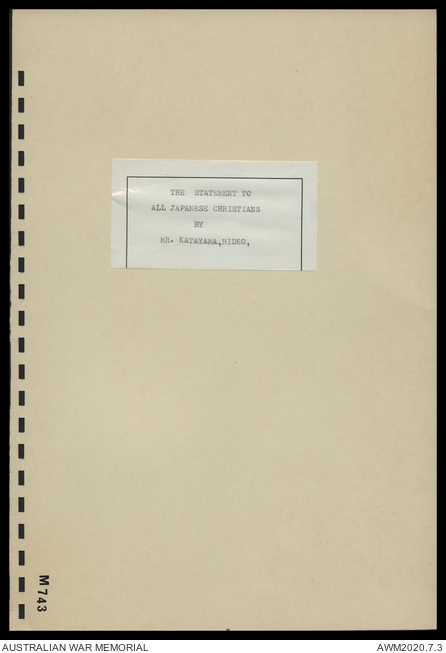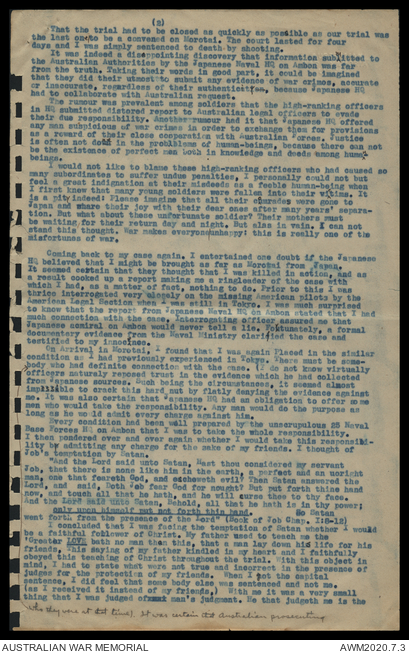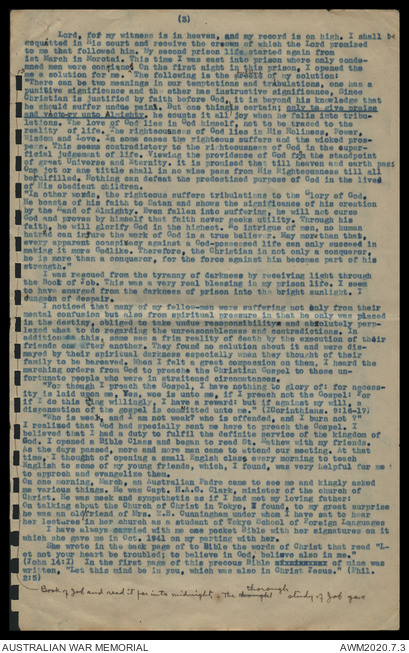| Place | Oceania: New Guinea1, Papua New Guinea, East New Britain, Rabaul |
|---|---|
| Accession Number | AWM2020.7.3 |
| Collection number | MSS0743 |
| Collection type | Digitised Collection |
| Record type | Item |
| Item count | 1 |
| Object type | Manuscript |
| Physical description | 11 Image/s captured |
| Maker |
Katayama, Hideo |
| Place made | New Guinea1: Papua New Guinea, East New Britain, Rabaul |
| Date made | 1946 |
| Conflict |
Second World War, 1939-1945 |
Manuscript entitled "The Statement to All Japanese Christians" by Lieutenant Hideo Katayama











Collection relating to the Second World War service of Lieutenant Hideo Katayama, Imperial Japanese Army, Japan, Netherlands East Indies, and Pacific Islands, 1946.
Katayama was a devout Christian Japanese soldier, who surrendered himself to Allied authorities on 9 February, 1946 after discovering that he was wanted for questioning. He was a soldier of both Japanese and English descent, who had studied English in Japan to a high degree. Katayama's diaries, written while imprisoned, were smuggled out by Australian chaplains and later published into the book "Ai to Shi to Eien to." His trial has cited on several occasions by scholars writing on the topic of war crimes trials of Japanese soldiers conducted by Australian authorities. The frequently-accepted view of Katayama's trial is that blame was placed upon him for crimes committed by higher-ranked soldiers. This was a view shared by many who came into contact with him during his time in prison.
The collection consists of a typed manuscript written by Katayama, dated 1 September 1946, and written while at Rabaul War Criminal Compound (WCC), entitled "The Statement to All Japanese Christians By Mr Katayama, Hideo."
The manuscript begins with an account of Katayama's surrender and the people he consulted about turning himself in to Allied authorities. A majority of the remainder of the account is largely focused on two themes: Katayama's very strong Christian faith, leading to the acceptance of his faith; and the role of Australian padres in assisting him to study the Bible and spread the Christian faith among Japanese prisoners.
The manuscript ends with Katayama accepting his likely fate of execution, that would occur in October 1947 by firing squad. Katayama concludes that his death will be a death that repents for the wrongs caused by Japanese forces throughout the war, likening his death to that of Christ's death for humankind's sins, and referring to himself as a martyr for all Japanese Christians.